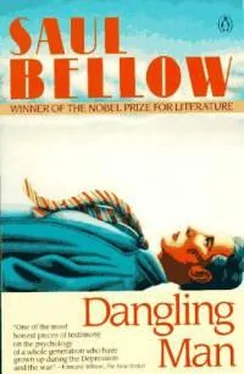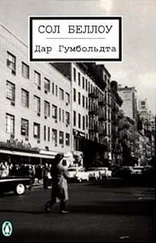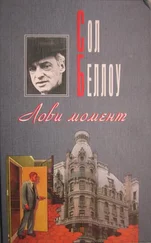Сол Беллоу - Dangling Man
Здесь есть возможность читать онлайн «Сол Беллоу - Dangling Man» весь текст электронной книги совершенно бесплатно (целиком полную версию без сокращений). В некоторых случаях можно слушать аудио, скачать через торрент в формате fb2 и присутствует краткое содержание. Жанр: Современная проза, на английском языке. Описание произведения, (предисловие) а так же отзывы посетителей доступны на портале библиотеки ЛибКат.
- Название:Dangling Man
- Автор:
- Жанр:
- Год:неизвестен
- ISBN:нет данных
- Рейтинг книги:4 / 5. Голосов: 1
-
Избранное:Добавить в избранное
- Отзывы:
-
Ваша оценка:
- 80
- 1
- 2
- 3
- 4
- 5
Dangling Man: краткое содержание, описание и аннотация
Предлагаем к чтению аннотацию, описание, краткое содержание или предисловие (зависит от того, что написал сам автор книги «Dangling Man»). Если вы не нашли необходимую информацию о книге — напишите в комментариях, мы постараемся отыскать её.
Dangling Man — читать онлайн бесплатно полную книгу (весь текст) целиком
Ниже представлен текст книги, разбитый по страницам. Система сохранения места последней прочитанной страницы, позволяет с удобством читать онлайн бесплатно книгу «Dangling Man», без необходимости каждый раз заново искать на чём Вы остановились. Поставьте закладку, и сможете в любой момент перейти на страницу, на которой закончили чтение.
Интервал:
Закладка:
She took me to the barber and had him cut my hair after the fashion of the time, in what was called a Buster Brown. She brought the curls back in an envelope and gave them to my mother, who thereupon began to cry. I bring this up not simply to recall how the importance of my appearance was magnified in my eyes, but also because during adolescence I was to remember this in another connection.
In a drawer of the parlor table where the family pictures were kept, there was one to which I was attracted from earliest childhood. It was a study of my grandfather, my mother's father, made shortly before his death. It showed him supporting his head on a withered fist, his streaming beard yellow, sulphurous, his eyes staring and his clothing shroudlike. I had grown up with it. And then, one day, when I was about fourteen, I happened to take it out of the drawer together with the envelope in which my curls had been preserved. Then, studying the picture, it occurred to me that this skull of my grandfather's would in time overtake me, curls, Buster Brown, and all. Still later I came to believe (and this was no longer an impression but a dogma) that the picture was a proof of my mortality. I was upright on my grandfather's bones and the bones of those before him in a temporary loan. But he himself, not the further past, hung over me. Through the years he would reclaim me bit by bit, till my own fists withered and my eyes stared. This was a somber but not a frightening thought. And it had a corrective effect on my vanity.
Only by this time it was not so simple as that, it was not merely vanity. By this time my face was to me the whole embodiment of my meaning. It was a register of my ancestors, a part of the world and, simultaneously, the way I received the world, clutched at it, and the way, moreover, in which I announced myself to it. All of this was private and never spoken of.
But, still more, while I was conscious of being handsome I was not a little suspicious of it. Mortality, I've explained, played its part, making inroads on my vanity. Suspicion undermined it further. For I kept thinking, "There's something wrong." I meant that there was a falseness about it. And then this incident occurred: In high school I became friendly with a boy named Will Harscha, a German. I used to visit him at home and I knew his sister and his younger brother, as well as his mother. But I had never met his father, who kept a store. in a distant neighborhood.
However, when I came to call one Sunday morning, the father happened to be at home, and Will took me in to meet him. He was a fat man, black-haired and swart, but kindly-looking.
"So this is Joseph," he said as he shook hands with me.. "Well. Er ist schin," he said to his wife.
"Mephisto war auch schin," Mrs.
Harscha answered. Mephisto!
Mephistopheles? I understood what she had said.
I stood frozen there. Mr. Harscha, observing me, must have grasped that I knew what she had referred for he began glaring at his wife, who, with her lips pressed together, continued to look at me.
I never saw them again. I avoided Will at school. And I spent sleepless hours thinking of what Mrs. Harscha had said. She had seen through me by some instinct, thought thenqand, where others saw nothing wrong, she had discovered evil. For a long time I believed there was a diabolic part to me. Later, I gave that up. It was "poor devil," if any devil. Not me, specifically, just the general, poor, human devil. But meanwhile I had the confirmation of people like Mrs. Harscha for my suspicion that I was not like others but (and I now know that it is an old belief and at the heart of what we call "Romantic") that I concealedsomething rotten.
And perhaps it is worldwide, such a conviction, and arises because we know ourselves too well to accept the good but, rather, embrace the bad opinions others have of us. Mrs.
Harscha may have dislikedme because I was too "well-behaved," or because of a way of mine in boyhood of making, or attempting to make, a compact with the adult relatives of my friends, particularly mothers, over the heads of their sons. She may have thought I had no business being unboyish.
Many people resented that.
I have long ago freed myself from this morbidity. It is because of Etta that I undertook to trace it back. But there is no reason to believe that there is any parallel between us. It may be that grandfather's bead hangs over both of us, but if and when it devours us it will be devouring two people who have nothing else in common.
I have also been considering Dolly. Of course, I knew that she was no saint; but now, reviewing her part in last night's affair, I find her farther on the hellward side than ever. Here I have additional proof of my inability to read people properly, to recognize the likelihood of baseness in themmas natural in some as a blink, a nod, a flip of the hand. I make theoretical, that is, unreal, allowances for it. I shall have to begin schooling myself in shrewdness.
December 28
Waaa" would Goethe say to the view from this window, the wintry, ill-lit street, he with his recurring pleasures, fruits, and flowers?
December 29
SrmT until one o'clock. Out at four for a walk, I lasted ten minutes and then retreated.
December 31
I SrrtvED in honor of the holiday. But we are not going out. Iva has some sewing to do.
MR. VANAKER observed the birth of the new year with large quantities of whisky, with coughing, pelting the yard with bottles, with frequent, noisy trips to the lavatory, and ended his revels with a fire. At about ten o'clock I heard his growls, unusually thick, and repeated thumps in the corridor and looked out to see him shambling through the smoke, feeling his way along the wall. Iva ran to summon Captain Briggs while I thrust open Vanaker's door. The armchair was burning. He hurried in with a cup of water, which he poured over it. He was wearing sleeveless pajamasAnd his bare arms were marked with sooty fingerprints. his large, fleshy, somewhat concave face, with its high forehead overarched with gray curls in a manner that suggested a bonnet, wasred and distressed. He did not speak; he ran to fetch another cupful.
By this time other roomers were on the scene, for the smoke had spread through the house: Mrs.
Bartlett, the middle-aged practical nurse from the large room in the rear; Mrs. Fessman, the pretty Austrian refugee; and Mr. Ringholm, who shares the third floor with Captain and Mrs.
Briggs.
"Tell him to carry out that chair," Mrs.
Bartlett said to me.
"He's trying to put the fire out," I replied.
Hasty slapping sounds came from Vanaker's room.
"With his hands."
"He'd better take it out. This is a frame house. It's dangerous."
Mrs. Bartlett came closer to me in the smoke, a tall figure in a kimono; her head was bound in a handkerchiefA black cotton sleeping mask hung around her neck.
"Someone should tell him to. Take it out, mister." Bat the smoke was too much for her. She retreated to the stairs. I, too, was coughing and rubbing my eyes. I stepped back into our room to recover. Throwing open the window, I cleared my head in the frigid air. Lortd knocks began outside. Ira looked in.
"I–Ie locked himself inside. He must be afraid of the Captain," she said.
I joined her in the hall. "Damn," said the Captain, amused and vexed. "What'd he start running for? How'm I going to get at the fire?"
He doubled the tempo of his knocks. "Open up, Mr. Vanaker. Come on, now."
"It's a wonder you don't lose your temper, Sir," sakl Mrs. Bartlett.
"Mr. Yanaker!"
"I'm awright," Yanaker said.
"He's ashamed, that's what it is," Mrs.
Bartlett explained to us.
"Well, I want you to let me in," the Captain said. "I have to see if the fire's out."
Читать дальшеИнтервал:
Закладка:
Похожие книги на «Dangling Man»
Представляем Вашему вниманию похожие книги на «Dangling Man» списком для выбора. Мы отобрали схожую по названию и смыслу литературу в надежде предоставить читателям больше вариантов отыскать новые, интересные, ещё непрочитанные произведения.
Обсуждение, отзывы о книге «Dangling Man» и просто собственные мнения читателей. Оставьте ваши комментарии, напишите, что Вы думаете о произведении, его смысле или главных героях. Укажите что конкретно понравилось, а что нет, и почему Вы так считаете.







